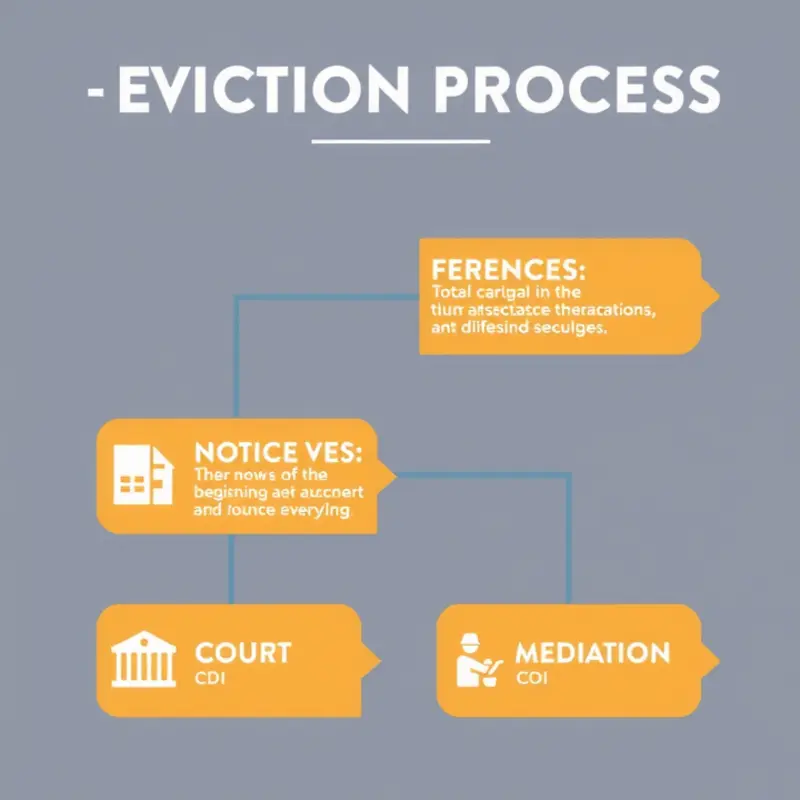Finding the right rental can feel overwhelming, especially for young professionals, first-time renters, students, and families entering the housing market. While renting offers flexibility, understanding the rules and regulations surrounding eviction is crucial to ensuring your living situation remains secure. An eviction can arise from various circumstances—failure to pay rent, lease violations, or even issues with property conditions. However, it’s essential to approach this topic confidently. Knowing your rights as a tenant, the steps involved in the eviction process, and practical tips can empower you to navigate challenges effectively. This guide aims to provide you with the essential information needed to understand eviction processes in a way that’s approachable and clear.
Your Rights as a Tenant: Understanding Eviction Laws

Navigating eviction requires understanding your rights as a tenant. These rights are established through a combination of federal, state, and local laws. It’s crucial for young renters to recognize these laws to safeguard their housing situation.
The first step in understanding eviction laws involves differentiating between legal and illegal evictions. A legal eviction occurs when your landlord follows the appropriate legal process, which typically requires a court order. Illegal evictions often include tactics like changing locks without notice or physical intimidation.
A cornerstone of tenant protection is the requirement for landlords to provide proper notice before proceeding with an eviction. Notices vary by state but generally include a Pay Rent or Quit Notice if the problem is nonpayment, a Cure or Quit Notice for lease violations like keeping a pet without permission, and an Unconditional Quit Notice for severe violations, such as damaging property. Familiarize yourself with the specific notice period required in your locality, as this can range from a few days to a month or more.
Understanding eviction timelines is a key factor in protecting your rights. Once a notice period lapses without resolution, landlords can file for eviction in court. It’s important to attend this court hearing, as failing to do so could result in a default judgment against you. Within this framework, many states allow opportunities to contest eviction—especially if the notice was improper, payment discrepancies exist, or conditions in your rental were unsafe, potentially violating warranty of habitability laws.
Federal protections, such as those provided by the Fair Housing Act, play an essential role by prohibiting eviction based on discrimination. If you suspect an eviction attempt is tied to your race, gender, religion, or another protected characteristic, it’s crucial to document these interactions and seek legal counsel immediately.
Legal resources available to tenants include legal aid societies, which offer free or low-cost legal representation, especially beneficial for young renters with limited funds. Numerous online platforms provide state-specific guidance, and tenant unions may exist in your area to offer collective support and advocacy.
Finally, understanding that landlords also have rights is key to maintaining a balanced relationship. Engaging in open communication and documenting all interactions can sometimes prevent the escalation to eviction. Negotiations to resolve disputes, whether about overdue rent or lease misunderstandings, often succeed with clear communication.
For comprehensive guidance aligned with your specific state laws, refer to State Renter Protection Laws, which provides a deeper dive into the various protections afforded to tenants in the U.S.
Young renters must equip themselves with knowledge and resources to navigate the complexities of eviction. By staying informed of your rights and understanding both the legal process and protections available, you can better manage these challenging situations.
Final words
Understanding the eviction process is vital for anyone renting a home, particularly young professionals and first-time renters who may not be familiar with their rights. By being informed about tenant laws and the steps involved in eviction, you can protect yourself and take necessary actions if faced with a potential eviction. Remember, you are not alone in navigating these challenges; resources and legal assistance are available to help you secure your rights as a renter. Empowered with this knowledge, you can engage in conversations about your lease with clarity and confidence.









